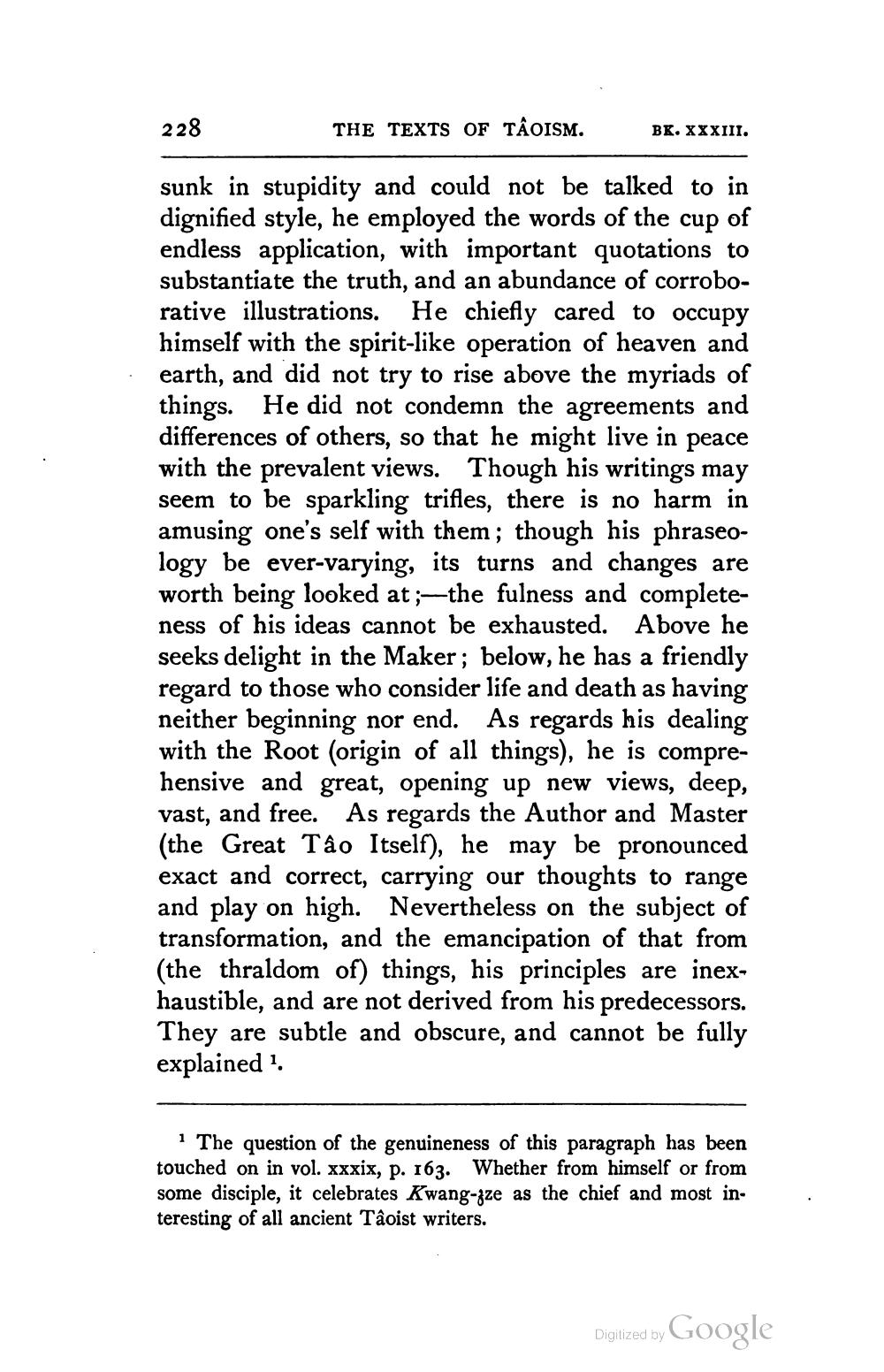________________
228
THE TEXTS OF TÂOISM.
BK. XXXIII.
sunk in stupidity and could not be talked to in dignified style, he employed the words of the cup of endless application, with important quotations to substantiate the truth, and an abundance of corroborative illustrations. He chiefly cared to occupy himself with the spirit-like operation of heaven and earth, and did not try to rise above the myriads of things. He did not condemn the agreements and differences of others, so that he might live in peace with the prevalent views. Though his writings may seem to be sparkling trifles, there is no harm in amusing one's self with them; though his phraseology be ever-varying, its turns and changes are worth being looked at;—the fulness and completeness of his ideas cannot be exhausted. Above he seeks delight in the Maker; below, he has a friendly regard to those who consider life and death as having neither beginning nor end. As regards his dealing with the Root (origin of all things), he is comprehensive and great, opening up new views, deep, vast, and free. As regards the Author and Master (the Great Tâo Itself), he may be pronounced exact and correct, carrying our thoughts to range and play on high. Nevertheless on the subject of transformation, and the emancipation of that from (the thraldom of) things, his principles are inexhaustible, and are not derived from his predecessors. They are subtle and obscure, and cannot be fully explained 1.
1 The question of the genuineness of this paragraph has been touched on in vol. xxxix, p. 163. Whether from himself or from some disciple, it celebrates Kwang-zze as the chief and most interesting of all ancient Taoist writers.
Digitized by Google




